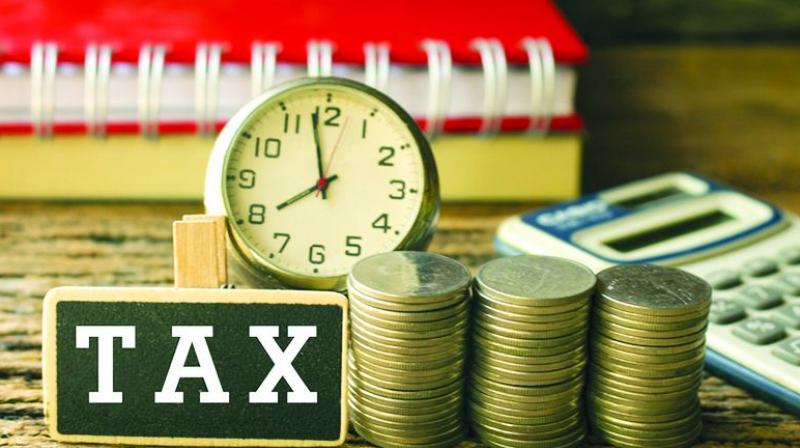No water connections? Tax can be waived under law

If you have no income, are you expected to remit income tax? If you don't own a vehicle, should you cough up road tax? If there is no property in your name, can you be expected to pay property tax? By the same logic, if there is no water and sewerage connection, how fair is it to slap residents with a tax and charges? The levy, mind you, is when there is no infrastructure itself, let alone supply. And it's not an isolated instance.
This peculiar scenario reportedly confronts four lakh residents represented by over a hundred welfare associations, along Chennai's much hyped IT hub, the OMR stretch.
In times of acute water scarcity caused by deficit rainfall, the water table is bound to be depleted. Borewells are sunk as desperate measures by residents. Self help comes at a price. The people of OMR, for instance, face a triple whammy. They are forced to install and operate water treatment and sewage treatment plants at a huge cost. Next, they are forced to pay commercial tariff for electricity to operate these units, ironically, for residential use. And finally, water tax to the statutory authorities for managing on their own!
It is pertinent to note that under Section 34 (3) of the Chennai Metropolitan Water Supply and Sewerage Act, 1978, “the Board may exempt any local area from the whole or portion of the water tax and sewerage tax on the ground that such area is not deriving any or the full benefit from the water-supply or sewerage system. The Board may remit a portion of such taxes not exceeding one half on the ground that the premises concerned has remained vacant.” This statutory provision clearly gives the Metro Water authorities discretion to waive or reduce the financial burden on a deserving section of residents.
Such relief may also check an otherwise inevitable cascading effect. Maintenance costs already going through the roof, may someday overtake rent! Owners who were promised fancy rental income by builders to offset their home loan EMIs end up with either unoccupied flats or with meagre rent as tenants would factor in the high maintenance component. In some cases, this may even cause defaults in loan repayment and pile on to the mountingnon performing assets of lenders.
It is important to understand that water and sewerage tax is a specific tax assessed based on 7 per cent of the annual value of the building as fixed by the Municipal Corporation. Although Section 35 of the CMWSSB Act governs assessment and annual value, the Board uniformly adopts the annual value as fixed by the Chennai Corporation.
Shouldn't there be a correlation between the levy of a tax and the provision of a service? The Madras high court in Madras Sanskrit College Vs Chennai Metropolitan Water Supply and Sewerage Board had taken into account the observation of the high court in Kasi theatre Vs MMWSSB that “being a component of property tax, water and sewerage tax is not related and referable to any particular service rendered to a particular individual but it is a general levy collected from the public for providing and implementing welfare measures. Whenever the annual value of the
property is revised by the Chennai Corporation , the same is being automatically adopted by and reflected in the revenue records of the Board.” The Supreme Court in M.Chandru Vs CMDA had distinguished a 'tax' from a 'fee'. “If it is a fee, the principle of quid pro quo shall apply.”
The fiscal hair splitting aside, in my opinion, water supply is not a favour done to people by the government. It's an essential service and a duty, as held in a catena of decisions of the Supreme Court. In Narmada Bachao Andolan Vs Union of India, the apex court had observed: that “water is the basic need for the survival of human beings and is part of right of life and human rights as enshrined in Article 21 of the Constitution of India. A similar view was also taken by the Court in A.P. Pollution Control Board Vs Prof M.V. Nayadu, which emphasised that “the right to access to drinking water is fundamental to life and there is a duty on the State under Article 21 to provide clean drinking water to its citizens.”
India is a signatory to the resolution passed during the United Nations Water Conference way back in 1977, which stated that “all people, whatever their stage of development and their social and economic conditions, have the right to have access to drinking water in quantum and of a quality equal to their basic needs.” It is shameful that a city that witnessed floods in 2015 is today reeling under an alarming water scarcity. The Supreme Court in Delhi Water Supply & Sewerage Disposal Undertaking Vs State of Haryana was firm that “water is a gift of nature. Human hand cannot be permitted to convert this bounty into a curse, oppression. The primary use to which water is put being drinking, it would be mocking nature to force the people who live on the banks of rivers to remain thirsty.”
The Allahabad high court in Lucknow Grih Swami Parishad Vs State Of U.P reiterated that people have a constitutional right to demand the fixing of accountability and action for failure to provide such public service against persons responsible for supply of drinking water.”
A welfare state must invoke its discretionary leeway under the statute to provide succour to a large group of citizens by waiving water tax and charges and not shock them with commercial electricity rates for a residential self help measure. And how about a sin tax for those who waste this precious elixir?
(The writer is an
advocate at the Madras high court, columnist & author)

